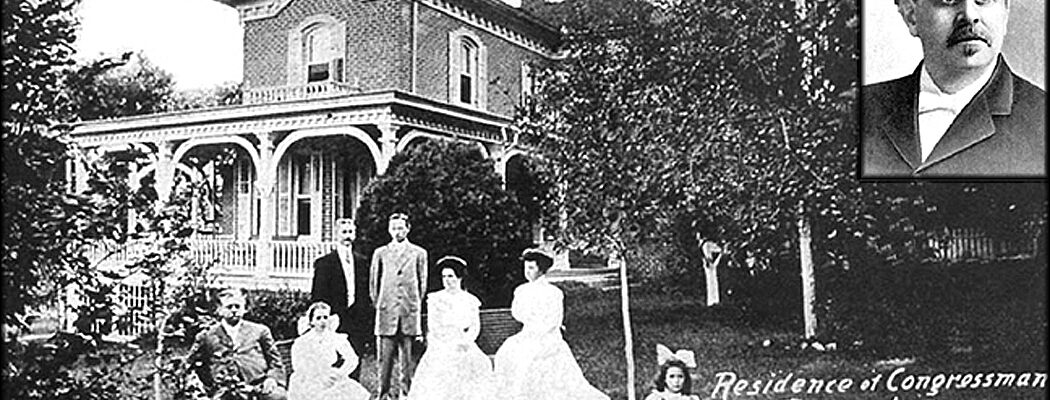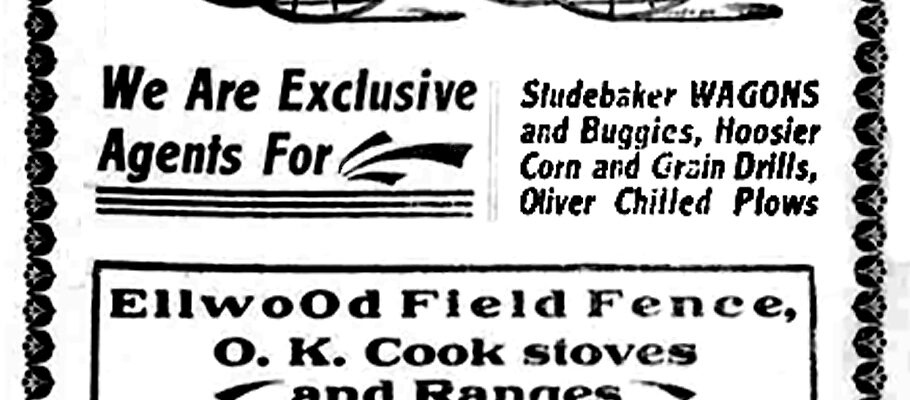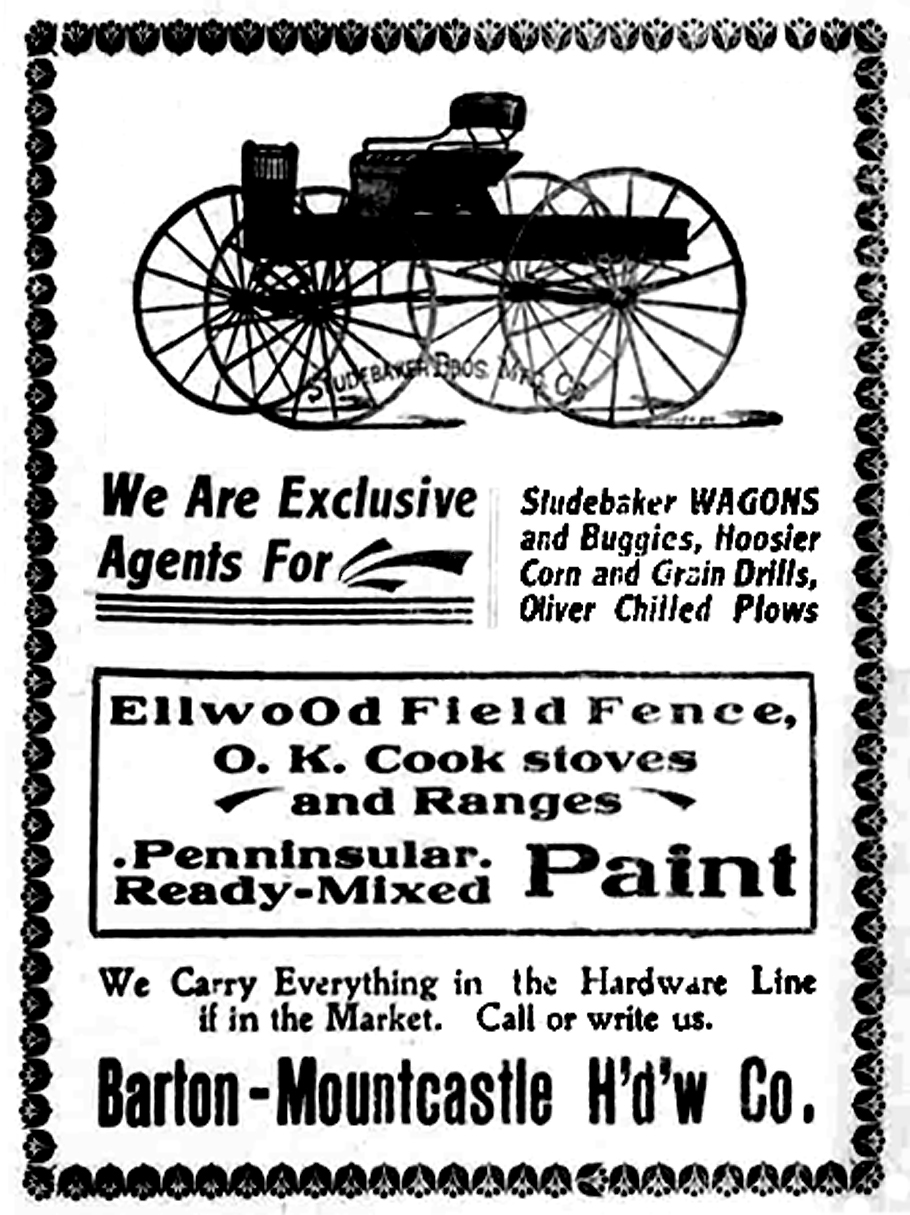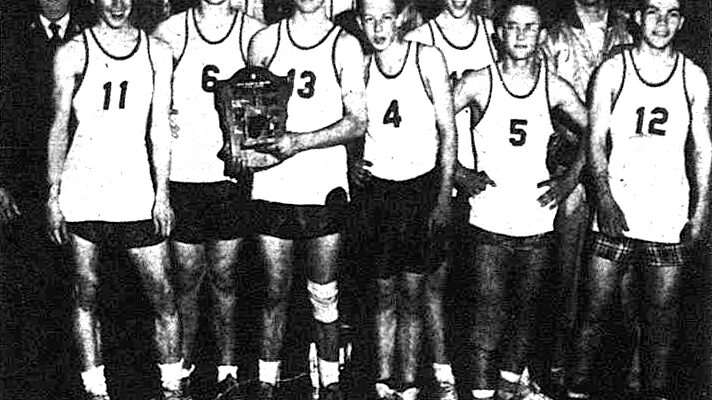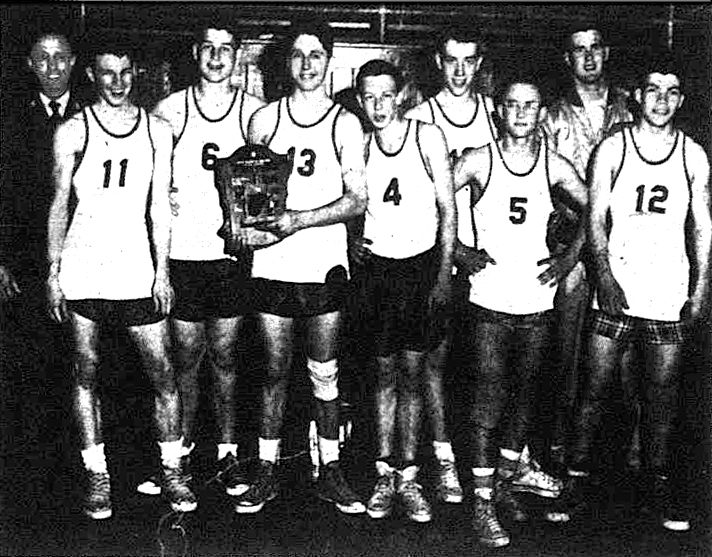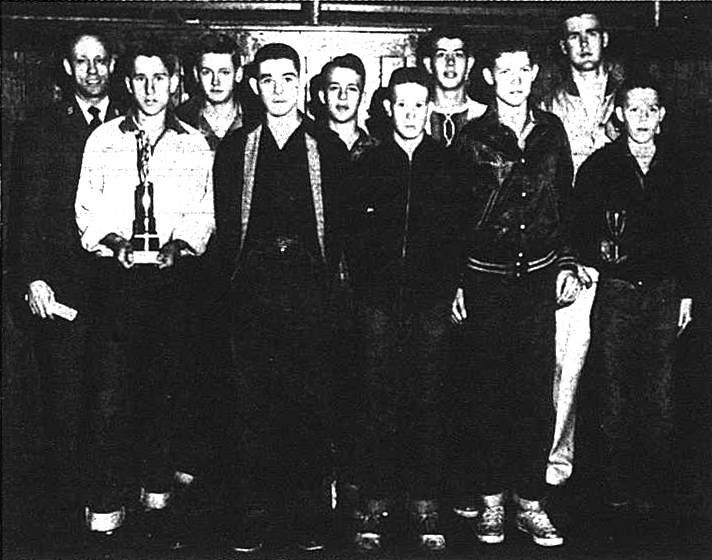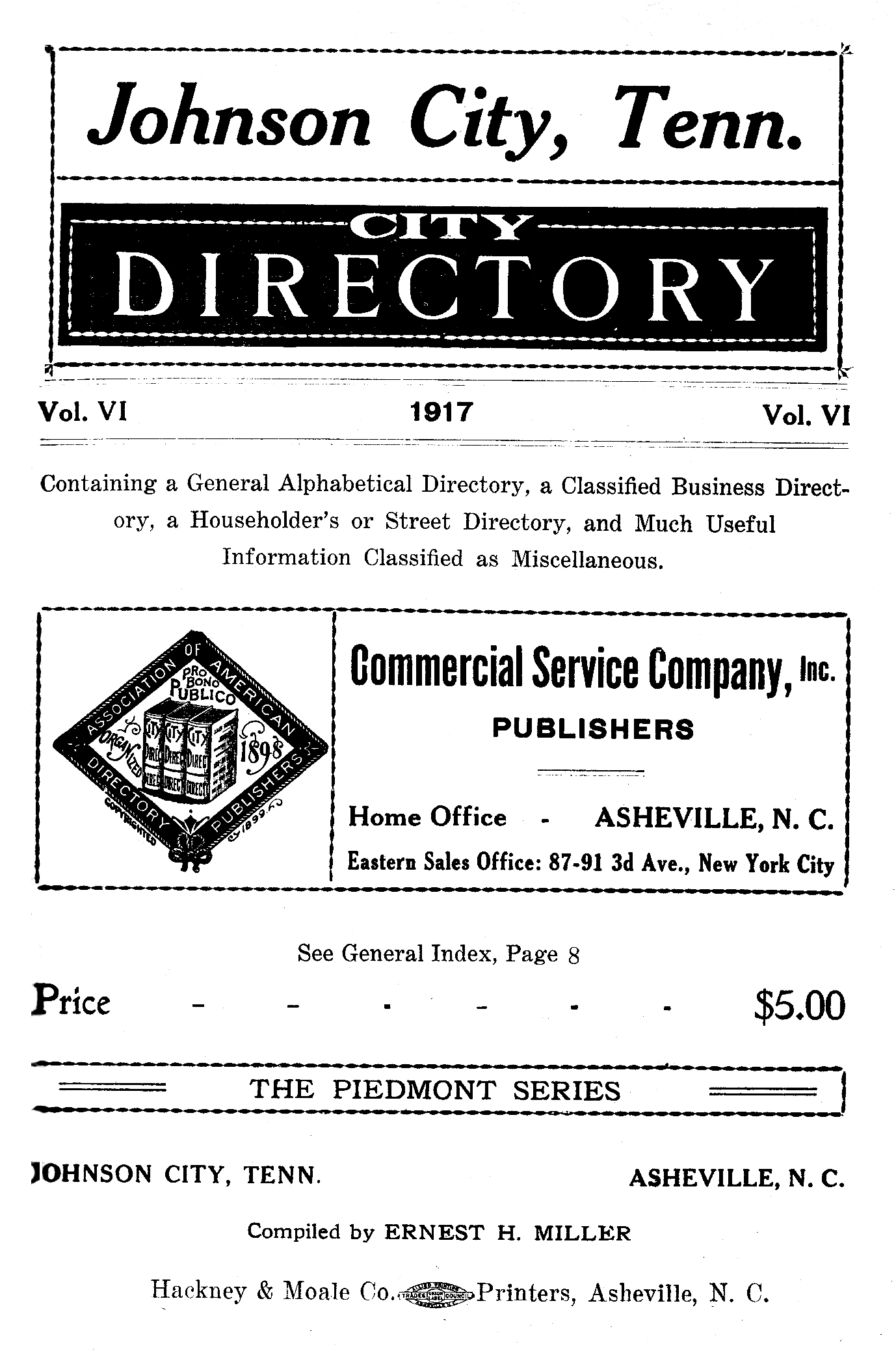Walter Preston Brownlow, a prominent name among East Tennesseans, worked in 1876 as a reporter for the Knoxville Whig and Chronicle and that same year purchased the Herald and Tribune in Jonesboro, Tennessee. He served as Tennessee's 1st district in the U.S. House of Representatives from 1896 until his passing in on July 8, 1910.
On July 11, 1910, Reverend J.A. Ruble, chaplain of the Mountain Branch Soldiers' Home, delivered an eulogy at the funeral of the Abingdon, Virginia native. The following is a abridgment of the speech:
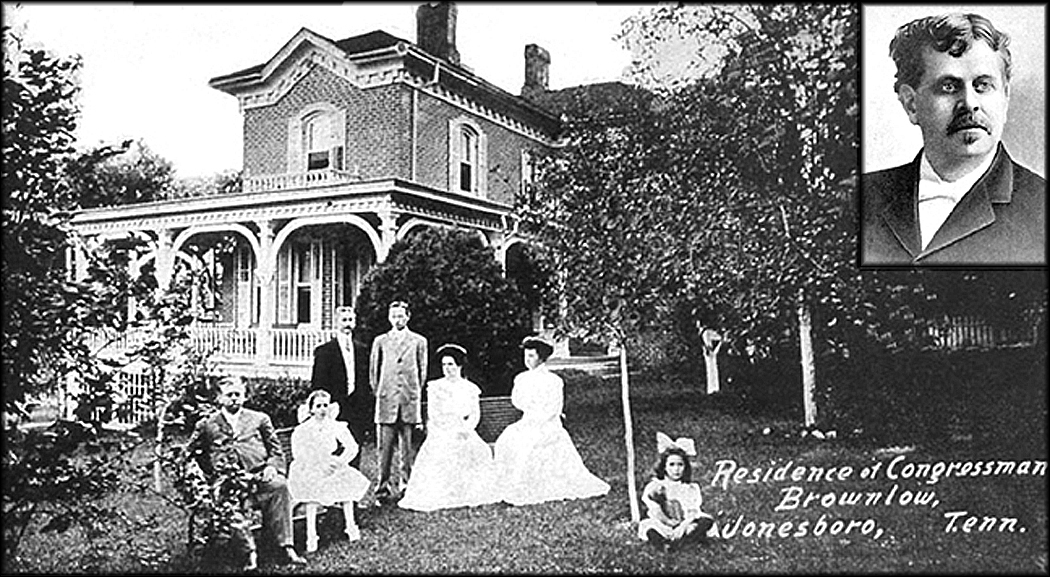
Walter Brownlow (insert) Family in Jonesboro, Tennessee
“Walter Brownlow was a character who was great and unique. After losing his father at age 10, he faced poverty and a lack of early educational opportunities. Nevertheless, he persevered in life until his name and influence was strongly felt in East Tennessee and nationally.
“Faced with the hardships of war, some men attain dazzling heights, becoming great with almost abrupt suddenness. Col. Brownlow launched his 'growl on a placid sea' and, amid the tranquil environments of peace, did a work and reached an influence that ultimately rendered his name immortal.
“That we may better understand the work and worth of this man, let us pause a moment for analysis and comparison. Serving in Congress for 14 years, it is probable that history will attest to the truthfulness of the statement that no other Congressman has been able to do more for his people. Certainly few have done as much.
“Disclaiming a purpose and deeply desiring to avoid being offensive, love for his memory and loyalty to truth will allow the statement that no other has ever wrought so fruitfully or achieved so much. He brought to his task untiring industry. He studied the needs of the people of his state and of the nation and, in a continuous effort, dedicated his splendid powers of brain and heart to supply them, which effort was crowned with marvelous success.
“Brownlow's accomplishments included the Mountain Branch of the National Home for Disabled Volunteer Soldiers, built at a cost of over $2 million, located near Johnson City, Tennessee. Among all the branches of the National Soldiers' Home, you stand as the capsheaf, (crowning top of the stack). Also included are Greeneville, Tennessee's National Cemetery, where rests the mortal remains of President Andrew Johnson, known among his people as the “Great Commoner”; the fish hatchery at Erwin; and Federal buildings at Bristol, Johnson City and Greeneville, all standing as monuments to his genius for hard and successful work.
“Because of his great heart, all classes and conditions of people could enter and be made welcome without ringing the door bell. In the many folks that we have seen approach him, from the worthy old veteran on crutches to the struggling laborer whose family was suffering for the necessaries of life, he never turned one away wounded. When he could do no more, he would send them away with the memory of a brother's tear.
“In the positions which differentiate the great parties, he was Republican, but as Congressman, he was the servant of all. While the congressional district, which he served was a historic battleground in the sad and stormy days of the sixties, the position of this people being peculiar in that they were radically divided in their sympathies. Many were clinging to the Confederate cause while others were clinging to the cause of the Union, thus causing the desolating waves of grim visage war to sweep back and forth like a simoom (silent sandstorm). It was here that his marvelous influence as a peacemaker was seen and felt.
“Mr. Brownlow was a firm believer in the Bible, believing that Jesus Christ stands for the highest good in the universe. He always felt and showed the greatest reverence for sacred things and, as the end approached, expressed faith in the spiritual and eternal, prayed earnestly and invoked the prayers of others.”
